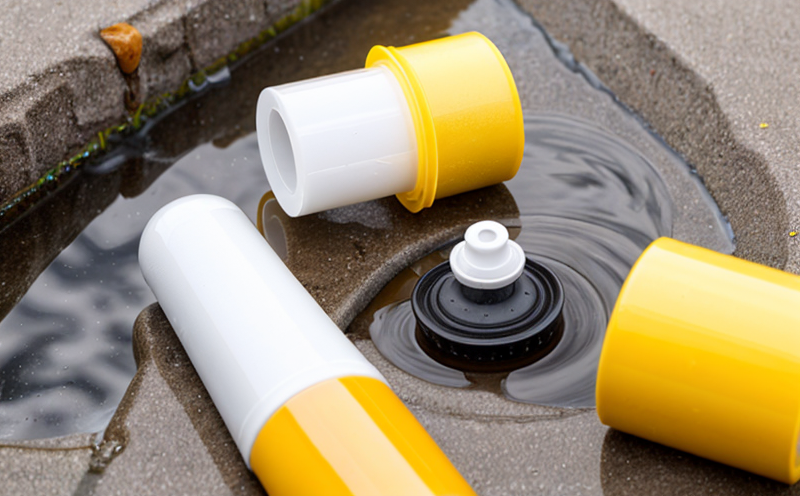GB T 21655-2 Resistance to surface wetting of fabrics
The resistance to surface wetting of fabrics is a crucial factor in determining the performance and quality of textile products. GB/T 21655-2 specifies the test methods for measuring the resistance to surface wetting of fabrics, which evaluates how water interacts with the fabric's surface. This test is essential for ensuring that textiles meet specific performance standards, particularly relevant in sectors such as clothing, home textiles, and industrial fabrics.
The GB/T 21655-2 test measures the time it takes for a drop of water to spread over the fabric’s surface. The faster the water spreads, the lower the resistance to surface wetting, indicating that the fabric is less hydrophobic (water-repellent) or more hydrophilic (water-absorptive). This parameter is critical in assessing how textiles behave under various environmental conditions.
Textiles with high resistance to surface wetting are desirable for products like rainwear and outdoor gear where water repellency is a key feature. Conversely, fabrics with low resistance to surface wetting may be preferred for applications requiring quick absorption or wicking of moisture, such as athletic wear and personal care products.
The test procedure involves placing a drop of distilled water on the fabric sample using a micropipette. The time taken from when the droplet makes contact with the fabric until it spreads to cover an area of 10 cm² is measured. This measurement provides insight into the hydrophobic properties of the fabric, which can significantly affect its suitability for specific applications.
Proper specimen preparation is critical before conducting this test. Samples should be conditioned according to the standard temperature and humidity requirements specified in GB/T 21655-2. The samples must also be cut into standard sizes suitable for testing, ensuring uniformity across all specimens.
The equipment required includes a micropipette, a stopwatch or timer, and a flat surface such as a metal plate at room temperature. The micropipette is used to deliver the water droplet onto the fabric sample, while the stopwatch measures the time taken for the droplet to spread over 10 cm² of the fabric.
The results from this test are reported in seconds. A lower value indicates better resistance to surface wetting, meaning the fabric resists spreading when exposed to water. Conversely, a higher value suggests that the fabric is more susceptible to water absorption or spreading.
Quality managers and compliance officers can use these results to ensure that products meet specific performance standards set by industry regulations or customer requirements. R&D engineers may also find this test valuable for optimizing fabric formulations to achieve desired hydrophobicity or hydrophilicity properties. Procurement teams can leverage the insights from this test to select suppliers who provide fabrics with appropriate resistance to surface wetting.
Understanding and implementing GB/T 21655-2 is essential for manufacturers aiming to meet international standards and ensure product quality. The test provides a reliable method to assess fabric performance, contributing to the development of high-quality textile products that perform well in various environmental conditions.
Eurolab Advantages
Eurolab offers comprehensive support for all your textile testing needs, including GB/T 21655-2 Resistance to surface wetting of fabrics. Our team of experts ensures that every test is conducted with precision and accuracy, providing reliable results that meet international standards.
- Accurate Equipment: Eurolab utilizes state-of-the-art equipment calibrated according to ISO standards, ensuring consistent and accurate measurements.
- Experienced Staff: Our team comprises highly skilled technicians and engineers with extensive experience in textile testing. They are well-versed in the latest industry practices and international guidelines.
- Comprehensive Services: We offer a wide range of services beyond just GB/T 21655-2, including other textile tests such as color fastness, dimensional stability, and mechanical properties.
- Fast Turnaround Times: Eurolab prioritizes efficiency, ensuring that your samples are processed promptly without compromising on quality.
By choosing Eurolab for your GB/T 21655-2 testing needs, you can trust in the expertise and reliability of our team. Our commitment to excellence ensures that every test result is accurate and meets international standards, providing valuable insights into fabric performance for a wide range of applications.
Why Choose This Test
- Ensures Product Quality: GB/T 21655-2 testing helps manufacturers ensure that their products meet specific hydrophobicity or hydrophilicity requirements, enhancing overall product quality.
- Meets Regulatory Standards: This test is essential for complying with international standards and regulations, ensuring that your products are safe and reliable.
- Enhances Customer Satisfaction: By providing fabrics with the desired resistance to surface wetting, manufacturers can meet customer expectations and preferences, leading to higher satisfaction levels.
- Informed Decision-Making: The test results provide valuable data that helps in making informed decisions about fabric selection and product development.
The GB/T 21655-2 test is particularly beneficial for manufacturers of rainwear, outdoor gear, and other products where water repellency or absorbency is critical. It ensures that the fabrics used in these products perform optimally under various environmental conditions, enhancing their overall performance and longevity.
International Acceptance and Recognition
- Affirmation of Quality: GB/T 21655-2 is widely accepted and recognized by international standards organizations such as ISO and ASTM. This recognition ensures that the test results are universally acknowledged, facilitating smoother trade and compliance processes.
- Global Market Access: Compliance with this standard opens up opportunities for manufacturers to access global markets where these products are in high demand.
- Reputation Building: Adopting internationally recognized standards enhances a manufacturer's reputation and credibility, making it easier to attract new customers and partners.
The GB/T 21655-2 test is particularly relevant for manufacturers operating in industries such as clothing, home textiles, and industrial fabrics. By adhering to this standard, they can ensure that their products meet the highest quality standards, thereby gaining a competitive edge in the global market.





